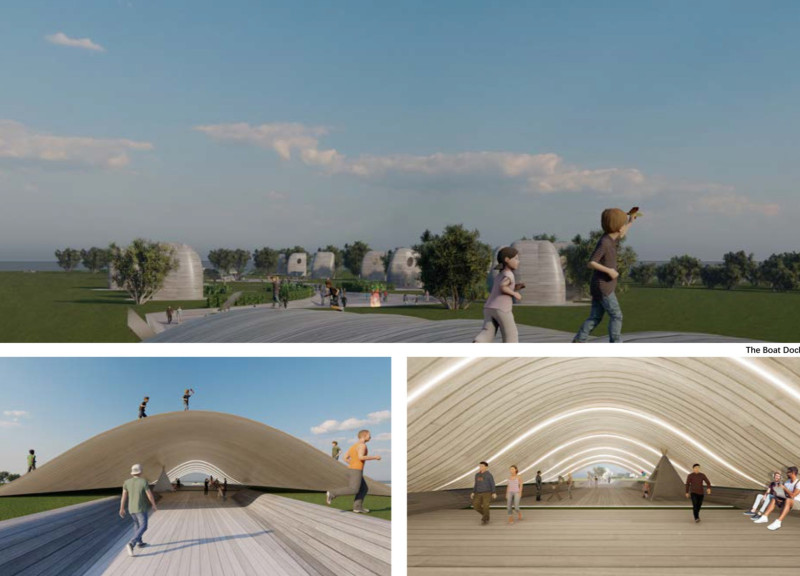5 key facts about this project
The Cobbles project, located in Skirinda, Latvia, is an architectural undertaking designed to facilitate a sustainable and community-focused environment for travelers. This project focuses on integrating built structures with the natural landscape, emphasizing both ecological considerations and local cultural elements. The aim is to create a venue that invites engagement with the surrounding environment while providing essential amenities for visitors and residents alike.
The primary function of The Cobbles is to serve as accommodation and community space along the Caramel Shore, near the Venta River. Key features of the project include a parking area, multi-functional shed, café spaces, traditional sauna, traveler cabins, and a boat dock. Each element is carefully considered to promote social interaction and enhance the overall experience of users within this natural context. The second stage of the project includes a restaurant space designed to accommodate a variety of community gatherings, further emphasizing the commitment to fostering an inviting atmosphere.
The architectural design incorporates several unique approaches that differentiate it from other similar projects. The use of organic forms and curvilinear pathways is crucial in creating a natural flow that connects various site components. This design method not only promotes navigation but also enhances users' interaction with the surrounding landscape. The integration of local materials, primarily timber and glass, reinforces the connection to the environment while ensuring sustainability through recyclable elements.
Additionally, the incorporation of a traditional wood-burning sauna situates The Cobbles within local cultural practices, adding depth to its design narrative. Sustainable practices are evident across the project, with features such as solar panels enhancing energy efficiency and passive heating strategies being implemented to achieve lower environmental impact.
Overall, The Cobbles project represents a thoughtful combination of architecture, sustainability, and community engagement. It meets functional needs through its facilities while allowing for an immersive experience in a natural setting. For more insights into the project, including architectural plans, sections, and design details, readers are encouraged to explore the project presentation further.





















































